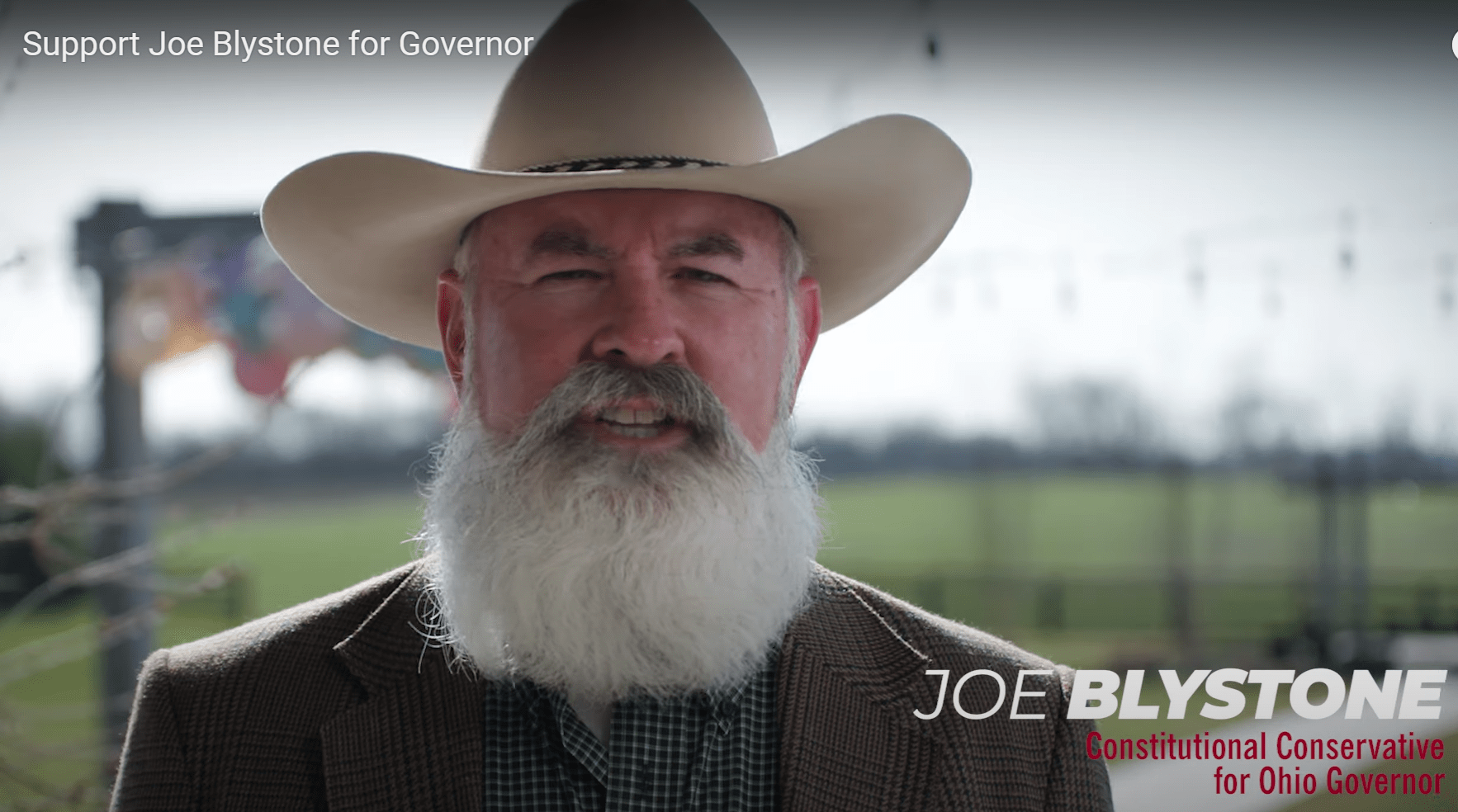Joe Blystone, whose ex-campaign manager filed complaints against him prior to the May 2022 Ohio gubernatorial primary, agreed to a settlement just hours before he was scheduled to appear before the Ohio Elections Commission in a full evidentiary hearing.
Sarah Chambers, Blystone’s ex-campaign manager, initially raised concerns about how the candidate was fundraising. Later, the Ohio Secretary of State’s office reported problems with about 55 contributions totaling $82,204. Chambers has said she could not remain with a campaign that was breaking the law. At one point it looked like the complaints might be referred to the Franklin County prosecutor’s office for possible criminal charges.
Blystone, a first-time candidate from Central Ohio, gained attention by pitching himself as a man of the people: a farmer and business owner, not a politician and the only true conservative in the race. He raised nearly $1 million for his primary campaign against then Governor Mike DeWine and primary contender Jim Renacci. Those donations included nearly $100,000 in un-itemized donations of $25 or less. While these small donations do not have to be reported, they are required by state law to be documented. The campaign also reported donations from locations and businesses rather than specific individuals – which is not allowed under Ohio law.
Executive Director of OEC called case unprecedented
Philip Richter, executive director of the Ohio Elections Commission, was quoted as saying that there was really no relevant precedent for Blystone’s case. “We’ve not seen a case like this that included the amount of improper contributions and truly incomplete campaign finance reports, as well as the fact that it involved a gubernatorial candidate. The commission has seen bad campaign finance reporting in its history, but this was a bit more extensive than anything previously reviewed.”
Settlement reached
Under a deal reached on January 5th with the Ohio Elections Commission, Blystone admitted to improperly documenting thousands of dollars in cash contributions to his campaign, among other campaign-finance violations. He agreed to:
- Not run for elected office for the next five years;
- Empty his campaign coffers to pay a $105,000 fine to the elections commission & put $75,000 into an escrow account to cover potential lawyer’s fees or other damages ordered in a related civil lawsuit;
- Terminate his state campaign committee, Friends of Joe Blystone.
By settling, Blystone avoided possible criminal charges and fines of up to $543,765 for misreported contributions, $10,000 for failing to file proper paperwork and $100 per day for late filing which totaled $86,300.
Questions still linger
Early on some grass roots volunteers had questions about Blystone’s candidacy. Rather than attack the establishment candidate Mike DeWine, Blystone and his campaign focused on attacking Jim Renacci, a well-known businessman who served in the US House and was one of the first Ohio political figures to endorse President Trump in his 2016 election bid. Renacci’s internal polling consistently showed him garnering 30% of the vote with Blystone running at 20%. Yet Blystone refused to concede and throw his support to Renacci in order to unseat Mike DeWine. Some wondered out loud who was funding the Blystone campaign and whether he was set up as a splinter candidate to fracture the DeWine opposition vote. On Election Day DeWine captured 48% of the vote with Renacci and Blystone splitting the opposition vote of 52% with 28% to Renacci and 22% to Blystone.
One interesting aspect of the Blystone campaign finance saga appears to shine light on those questions. In a deposition related to a countersuit Chambers filed against Blystone after he sued her for defamation of character, Blystone admitted that he knowingly flouted Ohio election finance laws and said that retiring chairman of the Ohio Republican Party Bob Paduchik visited his farm after he reached out for help sometime between the May primary election and the November general election.
Paduchik resigned two days after the deposition became public.












